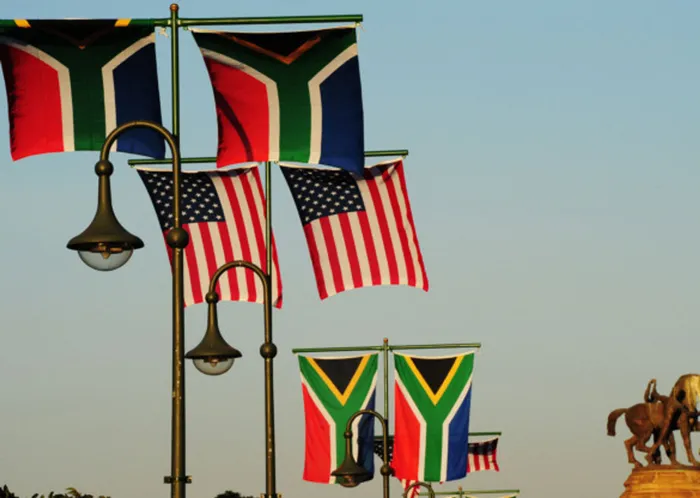Despite challenges, South Africa remains a vital investment hub, US report reveals

Despite hurdles, South Africa retains status as regional investment hub, US report finds.
Image: GCIS / File
The US government has revealed that South Africa remains a key gateway for investment in Sub-Saharan Africa, leveraging what is widely regarded as the region’s most advanced and industrialised economy.
Despite significant challenges, including a fraught political environment and persistent economic obstacles, the country’s relatively stable institutions and mature financial markets make it an attractive destination for foreign investors.
A recent report by the US Department of State, “2025 Investment Climate Statements: South Africa,” highlights these strengths and the challenges investors face navigating this dynamic market.
The report states, “Its relatively stable institutions, independent judiciary, and robust legal framework form key pillars supporting a conducive investment environment.
Alongside a free press, mature financial markets, and experienced local partners, these factors significantly facilitate US and other foreign investments.”
However, South Africa’s economic trajectory has been far from linear.
According to the report, many analysts describe 2010 to 2020 as a “lost decade,” marked by economic stagnation compounded by corruption and financial mismanagement.
The COVID-19 pandemic further delayed recovery efforts, while underlying infrastructure weaknesses continue to weigh on growth prospects.
One of the most pressing issues remains the ongoing energy crisis. The state-owned power utility, Eskom, operates aging coal-fired plants suffering from years of deferred maintenance and internal corruption.
The resulting rolling blackouts, or load shedding, have disrupted industrial operations and shaken investor confidence.
“While recent deployments of behind-the-meter solar capacity and improvements at Eskom slightly eased outages during much of 2024, power shortages re-emerged in early 2025,” the report notes.
Recognising the urgency, the government has crafted new regulations to allow private sector involvement in electricity transmission and plans to issue tenders for new grid infrastructure by late 2025.
On the political front, the 2024 national elections led to the formation of a wide-ranging ten-party coalition government known as the Government of National Unity (GNU).
The report states that the coalition brought stability and a commitment to reviving economic growth. Still, investor skepticism persists regarding the GNU’s cautious approach to market reforms and property rights protection.
“Concerns persist around policies that some view as threats to economic freedoms, particularly regarding land ownership,” the report warns.
A focal point of controversy is South Africa’s new Expropriation Act of 2024, which President Cyril Ramaphosa signed into law in December.
The legislation updates the apartheid-era framework, recalibrating compensation to a “just and equitable” standard rather than market value and allowing for “nil compensation” in targeted scenarios such as abandoned land.
“This environment poses a delicate challenge for property owners and foreign investors alike, raising significant concerns about the security of land tenure and investment protection,” the report reads.
Furthermore, it highlights that “inflammatory rhetoric from some political factions advocating illegal land seizures exacerbates the uncertainty.”
South Africa’s ambitious Broad-Based Black Economic Empowerment (B-BBEE) program, designed to address historical inequalities by enforcing ownership and employment criteria favouring Black South Africans, complicates foreign market entry, especially in government contracting and mergers.
“To navigate these challenges, some US companies have utilised alternative routes like the Equity Equivalent Investment Program (EEIP) and Employee Share Ownership Program (ESOP),” the report points out, noting particularly positive experiences in the technology sector despite some administrative hurdles.
The report states that the government actively promotes foreign direct investment through entities such as the Department of Trade and Industry and Competition (DTIC) and InvestSA, which provide streamlined services and various incentives.
Yet, it said that private sector stakeholders express concerns about the increasing politicisation of mergers and acquisitions and regulatory trends that could dampen South Africa’s investment appeal.
The report also praises South Africa’s hybrid legal system, which draws from civil, common, customary, and constitutional law traditions, for offering relatively strong property and contract protections.
Still, it cautions that protracted legal proceedings and recent limits on investor-state dispute settlement access may present challenges.
The US State Department report affirms South Africa’s status as a leading regional investment hub, underpinned by institutional stability, developed markets, and strategic reforms.
It advises investors to use a measured approach, “leveraging government facilitation programs while anticipating ongoing reforms and potential challenges.”
IOL Politics